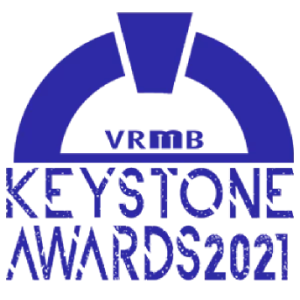Guide to British Columbia Short-Term Rental Regulations
The stunning natural landscapes of British Columbia draw millions of visitors each year. Investors can find many exciting opportunities across the province if they know where to look.
However, British Columbia has introduced comprehensive new rules to regulate tourist accommodation. It’s important to understand these laws and see what’s permissible before you take your first steps into short-term letting in the province.
Our guide breaks down the key short-term regulations in British Columbia, including licensing and tax requirements. We also give you an overview of the local laws in many of its popular cities and towns.
Disclaimer: Our guide is intended for informational purposes only and doesn’t constitute legal advice. For guidance on specific cases, please consult a property lawyer.
Short-term rental regulations in British Columbia
British Columbia has recently introduced a short-term rental accommodations act to address the housing crisis and free up more housing for residents. In many places, the prohibitive laws make the province a better investment for permanent residents than property management companies.
Under the new rules, you can only use your principal residence as a short-term rental. The good news is there’s a lot of flexibility to this requirement.
Everyone’s entitled to have one secondary suite or accessory dwelling unit on their premises. This enables you to turn a section of your property into a self-contained apartment or build a guest house on your premises.
There are many exemptions to the principal residence requirement, including:
- Small towns (more than 15 km from a city)
- Mountain resorts
- Trust areas
- Farmland
On top of that, the following types of property are exempt:
- Strata-titled hotels and motels
- Timeshares
- Fractional ownership properties
- Lodges
- Temporary accommodation for students or employees
Regions and municipalities can opt out of the principal residence requirement for a year provided their rental vacancy rates are over 3%. In other words, they must prove there isn’t a significant local demand for housing.
By early 2025, British Columbia also plans to launch a short-term rental registry. The province has started collecting data about businesses from local governments and hosting platforms to build its database.
Some local governments already require you to obtain a business license and follow certain bylaws. British Columbia has given regional districts the authority to charge up to $50,000 for any infractions. Cities may fine you as much as $3000 per day.
Short-term rental platforms like Airbnb and VRBO are also subject to new rules. If a listing doesn’t comply with local laws, they’re required to remove it from their site.
Tax requirements for British Columbia short-term rentals
All Canadian businesses must pay corporate income tax. While the rate starts at 38%, it’s typically around 15% to 28% after reductions.
Besides this tax, short-term rental operators are also subject to:
- Provincial sales tax (PST): British Columbia applies a 7% on the sale or lease of any goods, including accommodation.
- Goods and sales tax (GST): Like most provinces, you must also pay a 5% levy on any goods and services.
- Municipal and regional district tax (MRDT): Many areas of British Columbia have a local fee to offset the impact of tourism.
- Property tax: If you’re the property owner, you must pay the applicable rates for the area.
Short-term rental rules for popular destinations in British Columbia
Regions and cities in British Columbia often have their own short-term rental rules. Understanding these can help you see the suitability of different locations and what’s required from you as the property operator or owner.
Here are some of the key considerations for popular places in British Columbia:
Vancouver
Vancouver is one of the most popular destinations in Canada, welcoming over
10 million overnight visitors in 2023 alone. As a major city bordering the mountains and ocean, it offers plenty of options for property investors.
The city has established rules and guidelines concerning the use of short-term rentals. They’re similar to the provincial laws with some key differences.
Again, you can only operate your business out of your principal residence, However, in Vancouver, you
can’t add a secondary suite or accessory dwelling and lease that to guests instead. These count as a secondary residence.
Vancouver also requires you to register your business if you lease your property for up to 90 consecutive days. To apply, visit the
online portal and provide the following:
- Proof the short-term rental is your primary residence
- Your booking calendar for the last 12 months
- Any future reservations
- A strata approval letter (if applicable)
- A landlord approval letter (if applicable)
- Your property manager’s details (if applicable)
Note that you can’t register your business as a commercial entity. That means while homeowners may use a property management service, they must apply under their own name.
If you accept a lot of guests from various listing sites, it’s easy to lose track of booking details. You might accidentally overlook or duplicate an entry in your records. Consider using a
channel manager like Hostfully to manage bookings and sync all the data.
Once you’ve registered, you must add your business license number to any online listings. You can face a fine or even suspension if you fail to comply.
Victoria
Victoria is only a short ferry ride from Vancouver and has just as much to offer. This small city is full of beautiful parks, gardens, and charming architecture.
Like the capital, Victoria has restrictive short-term rental laws. You can only use your primary residence and you can’t lease self-contained units on your property.
You must also register your business by completing
this form and emailing it to the city council. The homeowner, tenant, and property management service are all eligible to apply. However, every application requires the owner’s consent.
In your application, you must outline a business plan and provide details for a designated emergency contact person.
Once licensed, you may only lease two bedrooms while the primary resident is at home. You can only accept bookings for the entire home while they’re temporarily away.
Tofino
On the eastern side of Vancouver Island, you can find the small town of Tofino. It’s a popular vacation spot due to its sandy beaches, surf culture, and hiking trails.
Tofino has opted into British Columbia’s Short-term Rental Accommodation Act. That means you can only lease your own home even though the town meets the criteria for an exemption.
Whistler
Just north of Vancouver, you can find the town of Whistler. It’s world-famous for its ski slopes and usually draws millions of winter sports enthusiasts.
Whistler is a resort town, which means you can operate your business out of secondary residences. You just have to check you have zoning permission first.
Like most places in British Columbia, you’re required to register your business. This applies to any properties used as a short-term rental. However, if you lease your property through a company, you’re covered by their license.
When the provincial registry goes live, you must register your business with them too, and add your license number to any online listings.
Revelstoke
Revelstoke is another charming mountainside town just on the border of British Columbia and Alberta.
Thousands of people visit the area each year to explore nature.
Unlike the town of Whistler, Revelstoke has opted into the Short-term Rental Accommodation Act. You can only operate your business out of the host’s principal residence.
You must also apply for a short-term rental business license. To apply, submit the application package alongside the following documents:
- Operator guidebook
- Application form
- Parking site plan
- Floor plan
- Fire evacuation plan
- Good neighbor agreement
- Proof of principal residence
- Owner or Strata Authorization Form (if needed)
Kelowna
The city of Kelowna is a lucrative spot for short-term rentals. Tourism is booming and you can expect to pocket around
$179.53 per night on average.
Kelowna mostly follows the province’s new regulations including the principal residence requirement.
Like the other cities, you’re also required to obtain a short-term rental business license before you open your business. The license costs $250 per year, always starting from January 15th.
As part of your application, you must complete and submit the following forms:
- License application
- Self-evaluation fire and safety form
- Good neighbor agreement form
- Strata consent form (if needed)
- Owner consent form (if needed)
- A parking plan
- An evacuation plan
Processing takes two to five weeks so apply in advance. The city council will send your approval notice to the email address you registered with.
Upcoming changes to short-term rental laws in British Columbia
The biggest upcoming change to short-term rental laws in British Columbia is the new registry but the government is still finalizing the details. However, we can get some details from the announcement and recent press releases.
British Columbia has staggered the launch of its registry. They expect to have finished developing the system in late 2024 and go live early 2025. No specific dates have been set but short-term rental hosts have six months to register their business from the activation day.
You’re responsible for checking whether you meet the conditions to run a short-term rental. If you’re ineligible, British Columbia encourages you to consider switching your property to a long-term rental.
| Looking to simplify your property management? Hostfully ensures seamless, stress-free operations by handling your bookings, payments, and guest communication.
Request a demo today |
Resources
- B.C’s short-term rental legislation, British Columbia
- Corporation tax rates, Government of Canada
- CPPM Procedure Chapter M: Sales Taxes, British Columbia
- Municipal & Regional District Tax Program (MRDT), Destination British Columbia
- Short-term rental business license, Vancouver
- Short-term rentals, Victoria
- Short-term rental regulations, Tofino
- How B.C’s new short-term rental rules affect Whistler, Whistler
- Short-term rentals, Revelstoke
- Short-term rentals, City of Kelowna
- Short-Term Rental Accommodations Act: Technical Briefing, British Columbia





